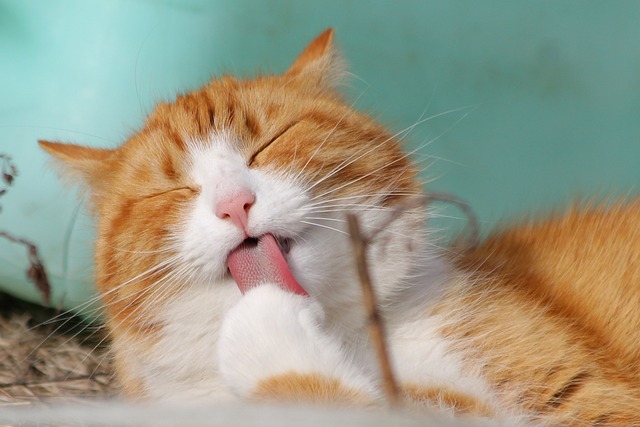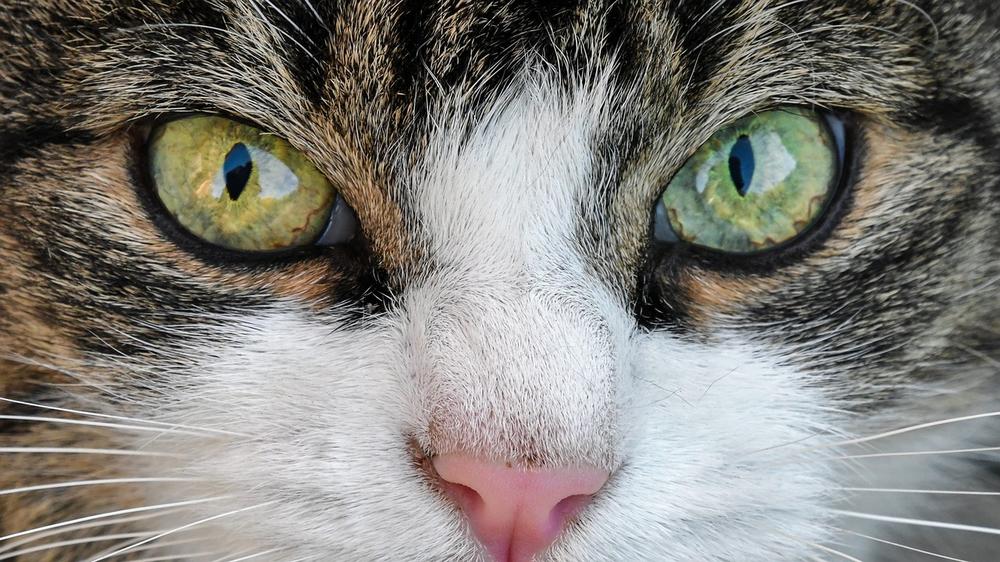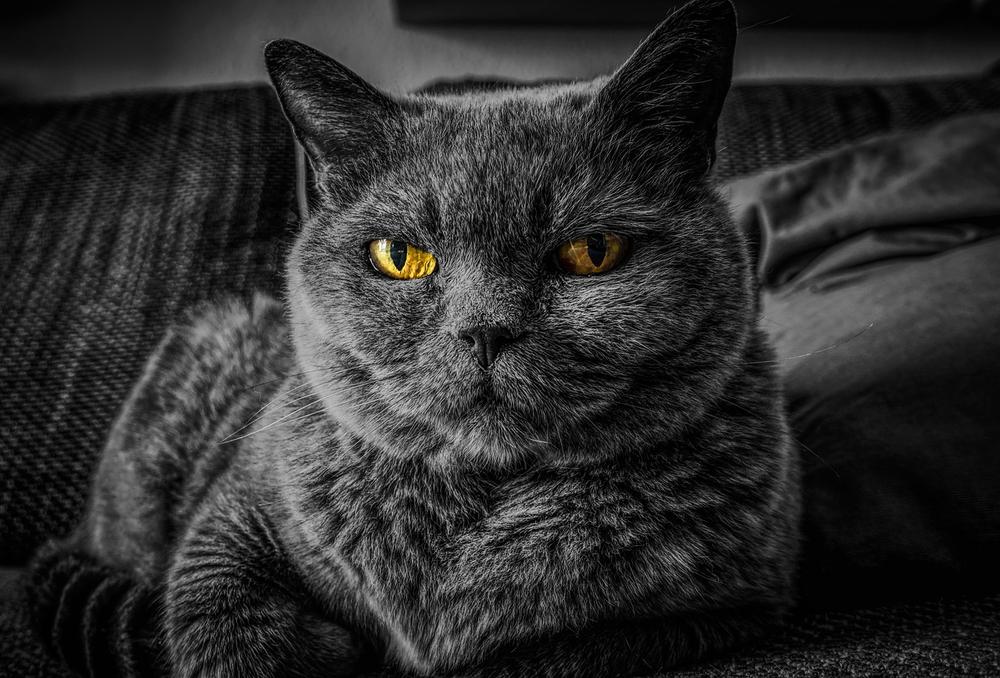Why Do Cats Lick Themselves After You Pet Them?

Ever wondered why cats insist on licking themselves after you pet them?
Are they trying to erase all traces of our touch? 😺
Do they secretly despise our affection?
I feel ya, you're dying to know the real reason behind this puzzling behavior.
Well, buckle up because we're about to dive deep into the enigmatic world of feline self-grooming.
So, if you're ready to uncover the truth behind this peculiar feline ritual, let's embark on this fascinating journey together.
The Potential Link Between Petting and Cats' Self-Grooming Habits
Did you ever wonder why cats groom themselves so much after you pet them? 😺
Well, there's actually a connection between the two. Let me explain:
- Cats groom themselves after being petted to calm down and regain control. It's like they're saying "Okay, that was a bit too much for me." Grooming helps them soothe their overstimulated senses.
- Another reason cats groom themselves is to relieve discomfort or itchiness in hard-to-reach spots, especially around the base of their tail. This could be due to skin conditions, food or insect allergies.
- Self-grooming also helps cats build social bonds with you. It reminds them of their mom licking them lovingly when they were babies. So, when your cat grooms itself after you pet it, it's their way of showing affection and nurturing that bond.
However, if your cat is grooming excessively or losing hair, it could be a sign of more serious health issues like psychogenic alopecia, hyperesthesia, or anxiety-related problems.
If you notice any changes in your cat's behavior, bathroom habits, or skin, you must seek veterinary advice and maybe even consult with a dermatologist or feline specialist. They can help identify any underlying problems and provide proper treatment.

To understand why your cat self-grooms, pay close attention to how they react to being petted and watch their grooming patterns. This will give you valuable insights into their needs and all in all well-being.
Armed with this knowledge, you'll be able to take better care of your beloved furry friend and give them the love and attention they deserve.
Main points I'll expand upon further down this article:
- Cats groom themselves to relieve stress and relax.
- Grooming is a way for cats to express affection and love.
- Cats may groom themselves after being petted to alleviate overstimulation.
- Unusual or aggressive grooming behavior may indicate agitation or overstimulation.
- Cats may groom themselves to maintain their own musk for hunting purposes.
- Grooming promotes cleanliness and bonding with other cats.
- Observing where and how a cat grooms themselves can provide insight.
- Self-grooming helps regulate body temperature and distribute natural oils.
- Abnormal grooming behaviors can indicate discomfort or pain.
- Conditions like fleas, ticks, mites, or feline hyperaesthesia may cause abnormal grooming.
And it gets more intriguing...
Have you ever wondered how cats groom themselves in those hard-to-reach spots?
In the next section, we delve into the fascinating mechanics behind a cat's self-grooming techniques and uncover some surprising secrets.
Prepare to be amazed!
The Comforting Effects of Petting on Cats
When you pet cats, it can have a comforting effect on their emotional well-being.
Let me break it down for you:
- Cats often groom themselves after being petted as a way to soothe themselves and find comfort in this repetitive action.
- While most cats enjoy being petted, some may not like too much of it and might respond by grooming themselves or even showing aggressive behavior.
- Grooming actually helps cats relieve stress and release tension, making it an important coping mechanism in different situations.
- Through grooming, cats also show their love and affection towards their owners. Some cats might even go the extra mile and lick your face or mouth to express their love. 😻
- If a cat behaves unusually or aggressively while being petted, it could mean that they feel overwhelmed by it. It's essential to understand and respect their boundaries.
- If a cat appears anxious or in pain during petting, it could be an indication of an underlying health issue that needs professional attention.
- Excessive licking can signal separation anxiety in cats. To reduce anxiety and strengthen the bond with your furry friend, engaging in interactive activities like playing with toys, games, and training is beneficial.
Every cat is unique, so pay attention to their individual preferences and reactions when it comes to petting.

If you're curious about why your cat is hiding in the closet, I have just the answer for you.
I've written a helpful blog post that goes into detail on this topic.
To discover the reasons behind your furry friend's behavior, check out my article on Why Is My Cat Hiding in the Closet.
You'll find all the information you need to understand your cat's actions and create a more comfortable environment for them.
Natural Instincts: The Role of Grooming in Cat Behavior
Cats, like writers, devote ample time to self-grooming.
This natural behavior can be witnessed after they receive affection, perhaps learned from their mother during early stages of development. It serves as an act of social mimicry, you see. Not only that, but it allows them to rid themselves of human scents and maintain their own musk for hunting purposes.
Fascinating, isn't it?
The feline grooming ritual promotes not only cleanliness but also induces relaxation and strengthens bonds between other cats.
By lavishing themselves with licks, they distribute natural oils, remove pesky debris, and evenly spread saliva, thereby regulating body temperature.
However, peculiar grooming habits such as excessive hair removal or ceaseless licking may suggest discomfort or pain; flea, tick, mite infestations or even feline hyperaesthesia might be the culprits behind such unsettling tendencies.
And that wraps up today's article.
Before you leave, could I ask you a quick question? Did my blog post prove helpful to you? If it did, I would be incredibly grateful if you could share it with your friends and family. It's as simple as tapping on any of the social media sharing icons to instantly spread the word. Thank you so much!
Talk soon,
-Sarah Davis